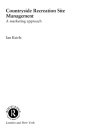Innovation and Scaling for Impact forces us to reassess how social sector organizations create value. Drawing on a decade of research, Christian Seelos and Johanna Mair transcend widely held misconceptions, getting to the core of what a sound impact strategy entails in the nonprofit world. They reveal an overlooked nexus between investments that might not pan out (innovation) and expansion based on existing strengths (scaling). In the process, it becomes clear that managing this tension is a difficult balancing act that fundamentally defines an organization and its impact.
The authors examine innovation pathologies that can derail organizations by thwarting their efforts to juggle these imperatives. Then, through four rich case studies, they detail innovation archetypes that effectively sidestep these pathologies and blend innovation with scaling. Readers will come away with conceptual models to drive progress in the social sector and tools for defining the future of their organizations.
Spis treści
Introduction: Social Enterprises Require a Distinctive Perspective on Innovation and Scaling
1. Of Red and Green Zones: How Innovation and Scaling Create Impact
2. Mapping Innovation Pathologies
3. Innovation as Learning: The Story of Gram Vikas (India)
4. Innovation in Support of Scaling: The Story of Aravind (India)
5. Innovating and Scaling for Transformative Impact: The Story of BRAC (Bangladesh)
6. Innovation that Enables Diffusion of Proven Ideas: The Story of Waste Concern (Bangladesh)
7. Innovation Archetypes: Balancing Innovation and Scaling over Time
8. Mapping Problem Spaces
Conclusion: A Guide to Productive Innovation and Scaling for Impact
O autorze
Christian Seelos is a Visiting Scholar at the Stanford Center on Philanthropy and Civil Society and the Leo Tindemans Chair of Business Model Innovation at the University of Leuven.
Johanna Mair is Professor of Management, Organization, and Leadership at the Hertie School of Governance and Hewlett Foundation Visiting Scholar at the Stanford Center on Philanthropy and Civil Society. She serves as Academic Editor of the
Stanford Social Innovation Review.












